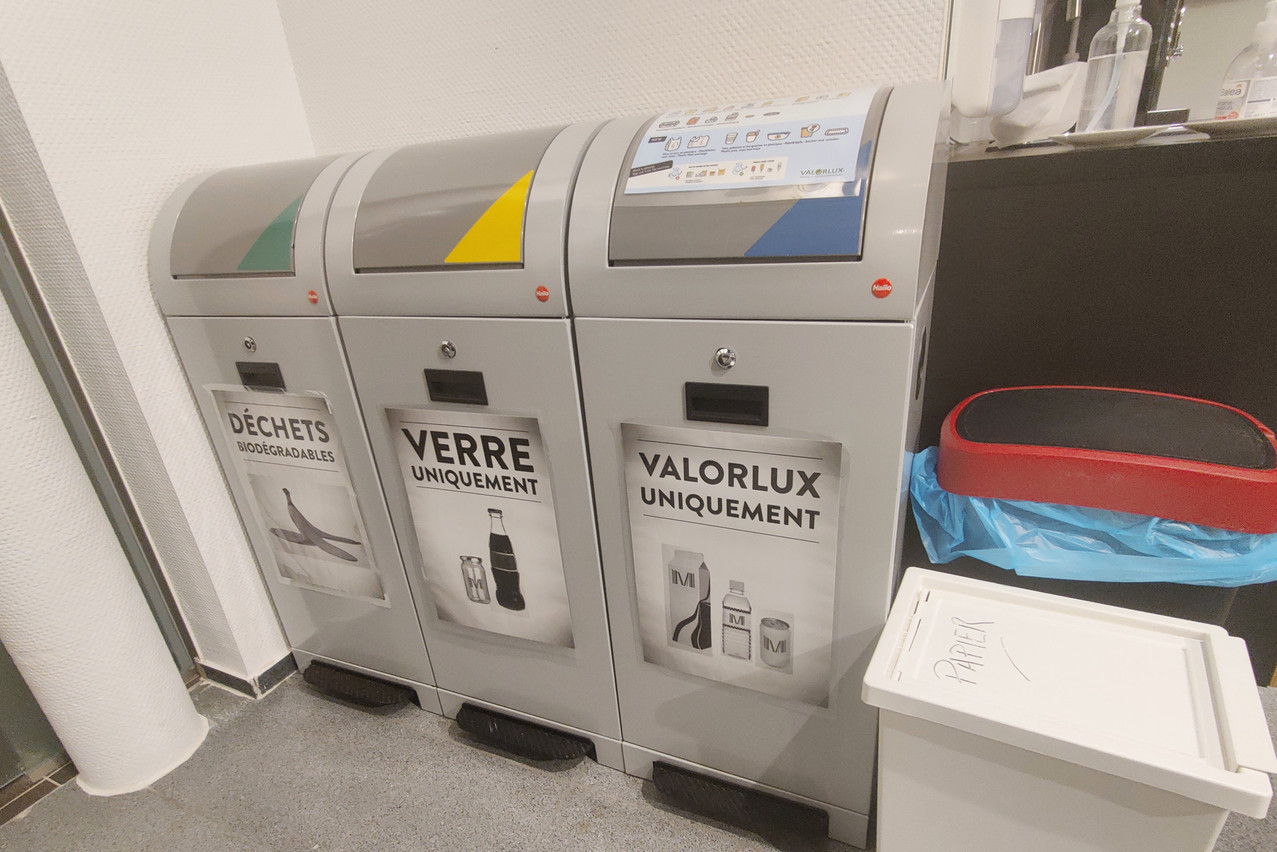Draft laws 7654, 7656, 7659, 7699 and 7701--if voted in--will heavily change the fabric of many businesses, with the production and management of packaging (7654), plastics (7656), waste (7659), batteries and accumulators (7699), and electronic equipment waste (7701) aiming to overhaul the waste management system.
While the package’s rapporteur François Benoy (Déi Gréng) defends the bills--he had --the trade confederation (CLC) and food distribution federation (FLAD) on 25 April published an open letter criticising the project. Bringing up the current energy crisis and raw material shortages the industry is impacted by, they state that “the sector was not consulted before the bills were introduced”, and argues that though amendments to the bills were made after they were deposited, the package would impact the sector and not further improve the waste issue.
Waste collection points and consumer habits
If the package is voted in, supermarkets with a surface larger than 400m2, thus 136 businesses, will have to offer a space for used package collection from 1 January 2023. Supermarkets with a surface larger than 1,500m2--of which there are 45 such businesses in Luxembourg--will have to follow suit one year later. This would cost businesses an estimated €12m in additional labour.
The CLC, Luxembourg’s federation for commerce, argues that Valorlux--the grand duchy’s recyclable waste collection company--already undertakes this work: “[Valorlux] is the commercial sector's solution to its obligation to take back and recycle packaging placed on the market. The current legislative proposal is therefore clearly redundant with respect to the Valorlux system and will not add any ecological value.” The federation adds that not only does Luxembourg goes far beyond the scope set by the European directives, but that customers who wouldn’t use the Valorlux bags are just as unlikely to use the waste collection centres.
The cost for businesses
Though this point is not raised by the CLC, restaurants and small produce counters will also be affected by the package; starting in 2023, no single-use bag can be handed out free of charge and restaurants offering take-out will have to have a strategy for reusable food containers to be implemented for the start of 2024.
Another issue the CLC highlights is the project to forbid packages of fruit and vegetables weighing less than 1.5kg. from July 2023. Though Flad--an organisation that represents 90% of food retailers in the grand duchy--is not against the idea, it does not deem the practical details logical. “Fruit and vegetable producers, most of who are foreign, will not change their packaging for the Luxembourg market. It should be noted that local production currently accounts for only 5% of fruit and vegetables sold in Luxembourg,” it said. This would either lead to food been unpacked behind the scenes in supermarket warehouses, or certain varieties not being sold anymore.
Likewise, a bottle deposit system planned in the package could cause issues with drinks distributors, as they would have to relabel recycled bottles. This could lead to issues with the offer and supply of such products in Luxembourg.
The waste law overhaul earlier this month had also attracted criticism from the trade chamber (CDC), which had said costs would befall businesses and companies. It also pointed out that some of the planned laws could not be implemented on Luxembourg's scale. The CLC and Flad agree with this, stating in their letter that the package is not adapted to the grand duchy's retail sector.
